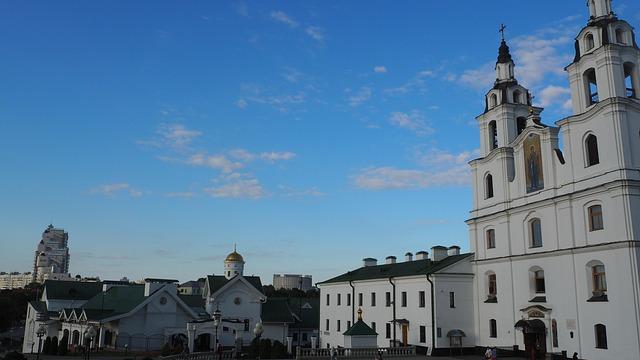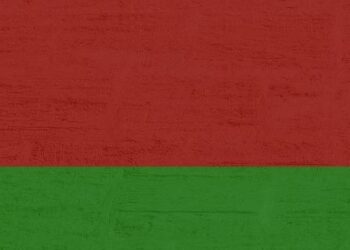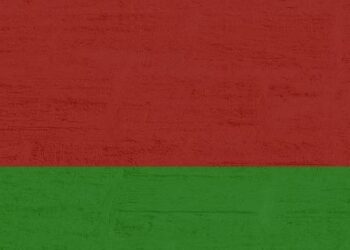The Atlantic Council has issued a stern warning against rewarding Belarusian President Alexander Lukashenko following the recent release of political prisoners. In a move widely viewed as an attempt to soften international criticism, critics argue that the dictator’s gesture should not overshadow ongoing human rights abuses and the regime’s continued crackdown on dissent. The Council emphasized that meaningful change must go beyond symbolic acts and that Lukashenko’s authoritarian rule remains a pressing challenge for global policymakers.
Belarus Regime’s Prisoner Releases Do Not Justify Lifting Sanctions
Recent releases of political prisoners by the Belarusian regime have sparked debates over the potential easing of international sanctions. However, these gestures do not erase the regime’s extensive record of human rights abuses and repression. The selective liberation of detainees appears more as a strategic move to alleviate diplomatic pressure rather than a genuine commitment to democratic reforms. Critics argue that lifting sanctions prematurely would not only reward authoritarian tactics but also weaken the leverage necessary to ensure lasting political change in Belarus.
Observers emphasize that sanctions serve as a critical tool to hold the regime accountable. The following table highlights key issues that remain unaddressed despite prisoner releases:
| Key Concerns | Current Status |
|---|---|
| Suppression of independent media | Ongoing censorship and arrests |
| Electoral fraud and manipulation | No meaningful reforms reported |
| Arbitrary detentions beyond released prisoners | Numerous political prisoners remain |
Until concrete democratic progress and respect for the rule of law are demonstrably embraced, maintaining sanctions is essential. International actors must resist any attempts by the Belarusian leadership to exploit prisoner releases as a means to secure unwarranted economic and political relief.
Human Rights Violations Persist Despite Symbolic Gestures by Lukashenko
In recent weeks, President Alexander Lukashenko’s decision to release a number of political prisoners has drawn mixed reactions from the international community. While some have hailed the move as a sign of possible political thaw, watchdogs emphasize that these gestures remain superficial against a backdrop of widespread human rights abuses continuing unabated across Belarus. Arrests, intimidation, and suppression of dissent have not ceased, casting doubt over the sincerity and permanence of these releases.
Key ongoing concerns include:
- Suppression of free speech: Journalists and activists remain targets of government crackdowns.
- Judicial intimidation: Courts continue to hand down politically motivated sentences.
- Excessive use of force: Law enforcement maintains a heavy-handed approach toward peaceful protests.
| Violation Type | Reported Incidents (Last 6 Months) | International Response |
|---|---|---|
| Arbitrary Detentions | 1,150+ | Sanctions & Condemnations |
| Media Censorship | 200+ Shutdowns | Calls for Press Freedom |
| Physical Abuse | 350+ Recorded Cases | Human Rights Investigations |
Despite the brief reprieve for some detainees, experts warn that unlocking freedom for a few cannot obscure the broader system designed to silence opposition and entrench authoritarian rule. Rewarding or easing pressures on Lukashenko based on these limited concessions risks undermining sustained efforts to hold the regime accountable for gross violations and obstruct meaningful reform.
Atlantic Council Calls for Sustained Pressure and Concrete Accountability Measures
The Atlantic Council emphasizes that the recent release of some political prisoners by the Belarusian regime should not be misconstrued as a humanitarian gesture or an opportunity to ease international sanctions. Instead, this development must be viewed within the broader context of systemic repression and human rights abuses that persist under Alexander Lukashenko’s rule. The Council urges the global community to maintain unwavering pressure on Minsk, ensuring that any concessions are coupled with tangible accountability measures targeting those responsible for ongoing violations.
Key demands outlined by the Atlantic Council include:
- Enhanced sanctions targeting regime loyalists and security apparatus financiers
- Strict monitoring of Belarus’s compliance with international human rights commitments
- Robust diplomatic efforts to support Belarusian civil society and independent media
- Clear benchmarks for lifting any sanctions, tied to verifiable political reforms
| Measure | Objective | Status |
|---|---|---|
| Sanctions Expansion | Cut off regime funding channels | Ongoing |
| International Investigation | Document human rights abuses | Pending |
| Support for NGOs | Strengthen civil society resilience | Active |
Insights and Conclusions
As the international community watches developments in Belarus closely, experts at the Atlantic Council caution against interpreting the release of political prisoners as a sign of genuine reform. They warn that granting concessions or rewards to President Alexander Lukashenko risks legitimizing a regime that continues to suppress dissent and violate human rights. True progress, they argue, requires sustained pressure and accountability, not premature praise. The path forward remains fraught, with vigilance essential to ensuring that token gestures do not obscure the ongoing struggle for democracy and justice in Belarus.
















